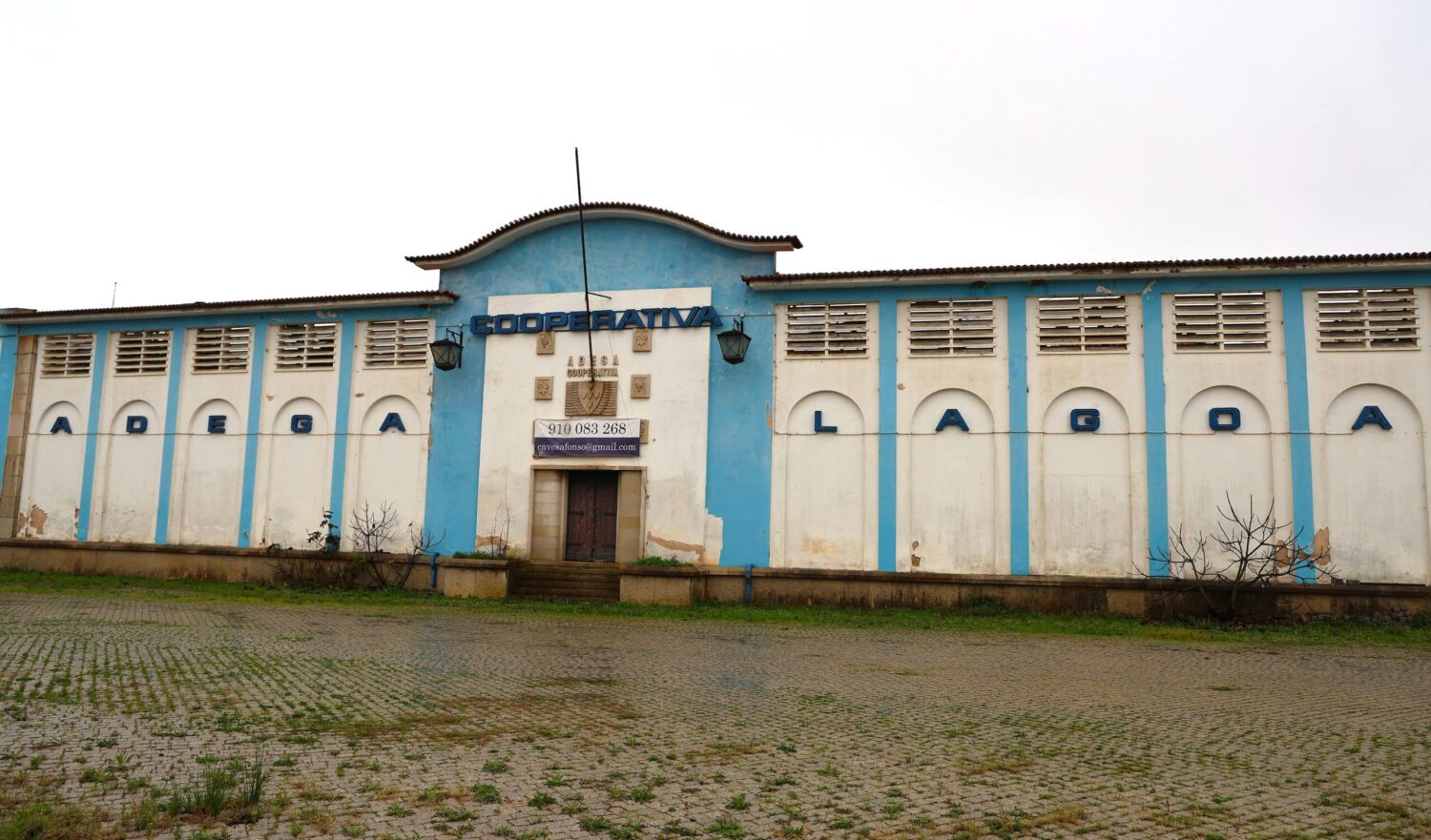Única sold the building in 2018 and has seen its lease agreement ended
The municipal council of Lagoa is open to purchasing the historic headquarters of ÚNICA – Adega Cooperativa do Algarve, the local winemaking cooperative which has been evicted and has until June to find a new home.
The future of the historic building – located along the EN125 road, just a stone’s throw away from the headquarters of the Algarve Wine Commission (CVA), which is being purchased by the local council – is in question after the cooperative sold it in 2018 to settle debts with banks and members.
During a meeting with the cooperative’s leadership on January 14, Lagoa mayor Luís Encarnação confirmed that the local council had no knowledge at the time that the building had been sold.
“At the time of the sale, the municipality was not consulted or offered the opportunity to acquire the property. Such rights of preference didn’t exist then,” Encarnação told Barlavento newspaper.
“I wasn’t the mayor at the time, but my predecessor (Francisco Martins) has confirmed that he had no knowledge (of the deal). We also checked the council’s archives and there is no evidence of any proposal or talks that suggested the council considered purchasing the winery,” Encarnação stated.
If a similar sale occurred now, the council would be in a position to “exercise that right,” the mayor added.
While the council is open to acquiring the building, Encarnação says it will depend on the price and financial feasibility. “If the valuation is within the municipality’s means, we’ll consider exercising our right of preference. However, if the price exceeds our capacity, the private market will decide the property’s future,” Encarnação clarified.
To ensure that the property’s legacy is protected, an update to the Municipal Master Plan (PDM) was made in 2021, which prohibited residential developments on the site.
“The PDM specifies that the property is designated for commerce and services,” the Socialist mayor states, adding that the plan also requires maintaining industrial wine production and creating a wine museum. In other words, the current or future owner of the plot will always have to respect these demands. The only exception would be a project such as a boutique hotel, a restaurant, or stores related to wine culture, which would align with the municipality’s vision for the property.
Thus the mayor issued a warning to potential buyers: “Contact the municipality first and understand what can – and cannot – be done with the property.”
Meanwhile, the future of Única remains up in the air. Ana Clara Agapito, a representative of the cooperative, told Barlavento in December that it may very well close if a new HQ, even if a temporary one, is not found.
As she explained, its closure could be disastrous for the region’s wine industry. Relocating from its current premises would involve complex logistics, Agapito explained, especially as many wines from the 2023 harvest are still aging and unready for bottling. Transporting these wines prematurely could compromise their quality, with the additional risk of downgrading Algarve’s Denomination of Protected Origin (DOP) and Protected Geographical Indication (IGP) wines to table wine – a move deemed “unthinkable”.
The immediate priority is to bottle the 2022 wines, while discussions continue. Agapito also said losing the cooperative would leave the Algarve as the only wine-producing region in Portugal without such a facility, jeopardising its cultural and economic diversity.
The Algarve Wine Commission (CVA) has also voiced concern about ÚNICA’s uncertain future.
“ÚNICA is the third oldest cooperative winery in the country and represents a vital part of the region’s winemaking history. Its closure would be a significant loss, not only of the building but also of its work and legacy,” CVA president Sara Silva said.




















